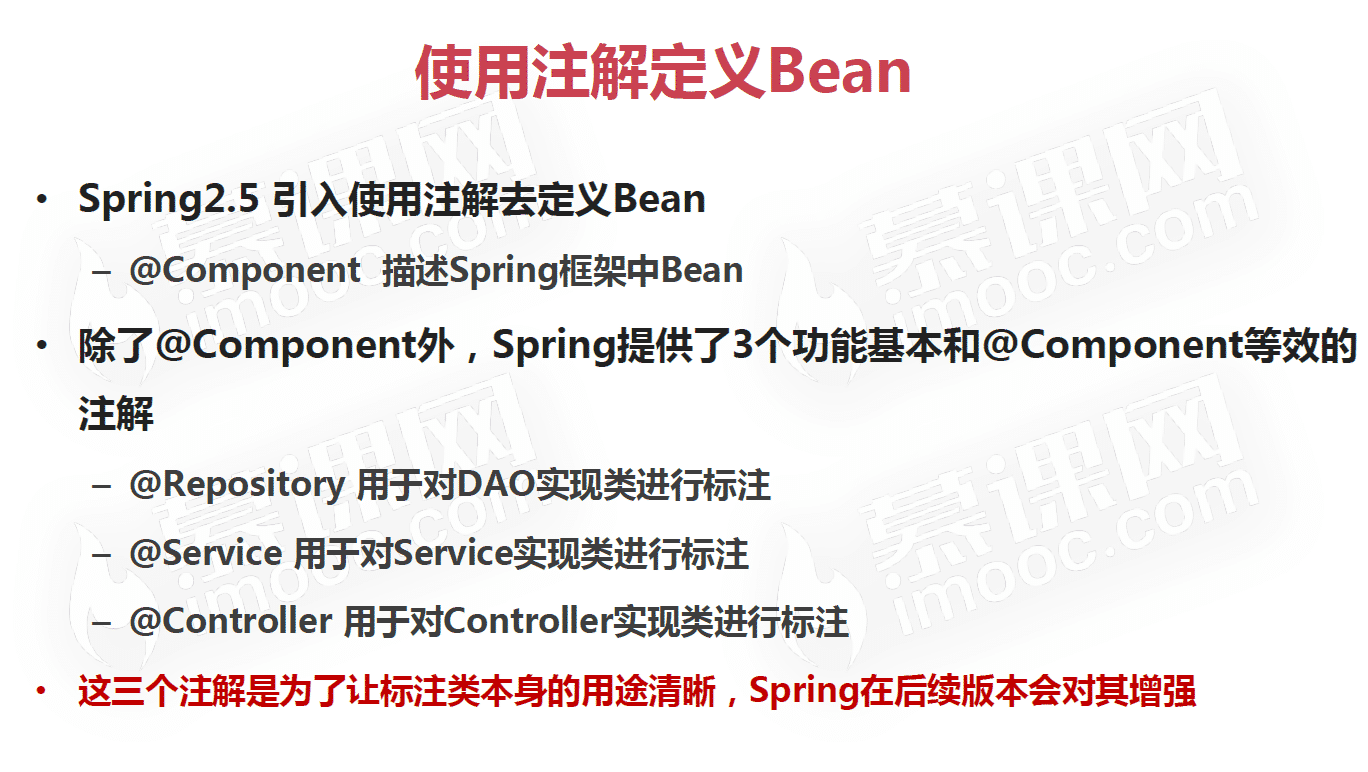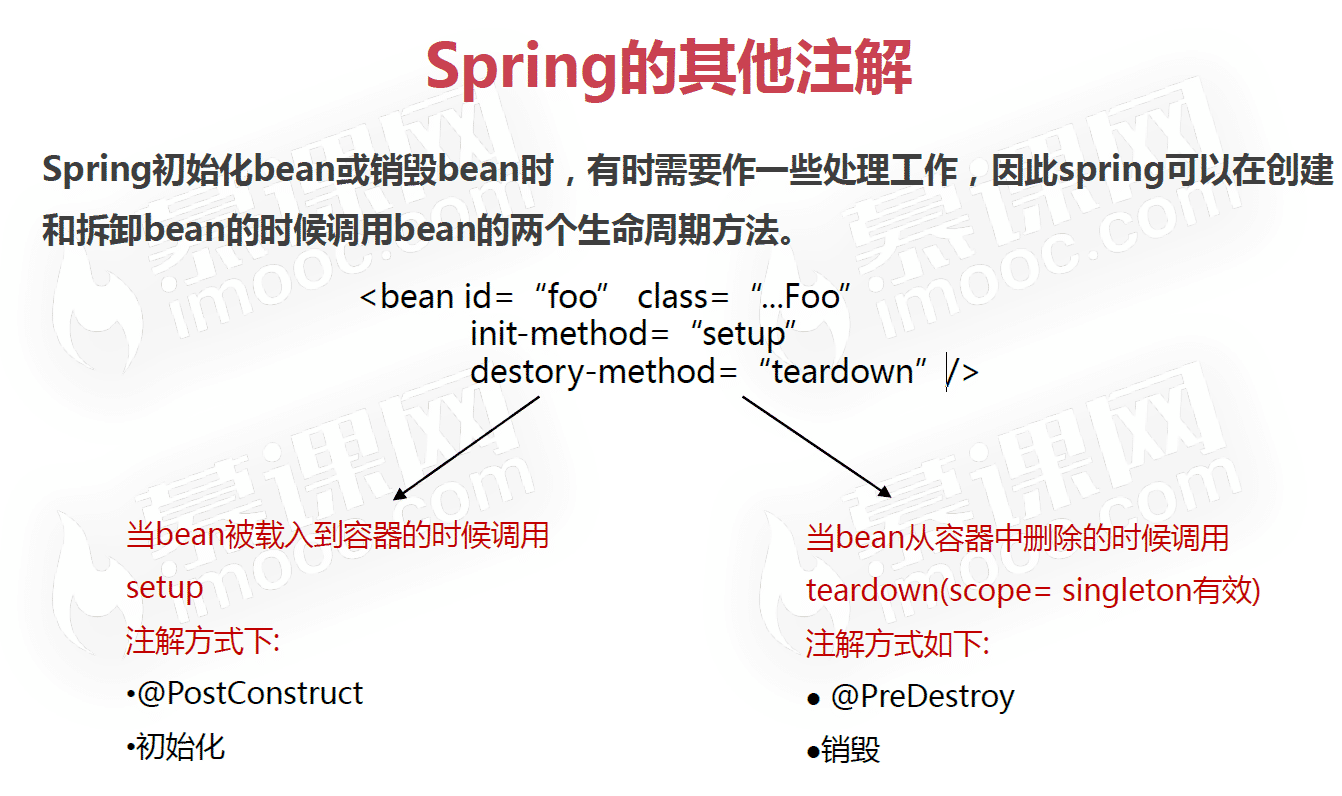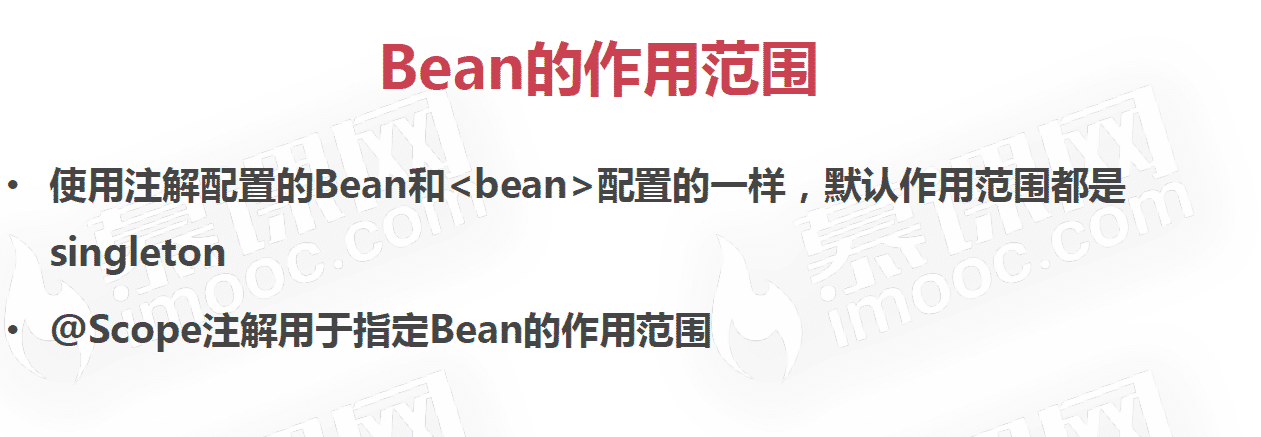жӮЁеҘҪпјҢзҷ»еҪ•еҗҺжүҚиғҪдёӢи®ўеҚ•е“ҰпјҒ
д»ҠеӨ©е°ұи·ҹеӨ§е®¶иҒҠиҒҠжңүе…іSpring BeanдёӯжҖҺд№ҲеҜ№жіЁи§ЈиҝӣиЎҢз®ЎзҗҶпјҢеҸҜиғҪеҫҲеӨҡдәәйғҪдёҚеӨӘдәҶи§ЈпјҢдёәдәҶи®©еӨ§е®¶жӣҙеҠ дәҶи§ЈпјҢе°Ҹзј–з»ҷеӨ§е®¶жҖ»з»“дәҶд»ҘдёӢеҶ…е®№пјҢеёҢжңӣеӨ§е®¶ж №жҚ®иҝҷзҜҮж–Үз« еҸҜд»ҘжңүжүҖ收иҺ·гҖӮ
1.дҪҝз”ЁжіЁи§Јзҡ„ж–№ејҸйңҖиҰҒй…ҚзҪ®applicationContext.xmlпјҡ
<?xml version="1.0" encoding="UTF-8"?> <beans xmlns="http://www.springframework.org/schema/beans" xmlns:xsi="http://www.w3.org/2001/XMLSchema-instance" xmlns:context="http://www.springframework.org/schema/context" xsi:schemaLocation="http://www.springframework.org/schema/beans http://www.springframework.org/schema/beans/spring-beans.xsd http://www.springframework.org/schema/context https://www.springframework.org/schema/context/spring-context.xsd"> <context:component-scan base-package="org.yzytest1"></context:component-scan> <!--ејҖеҗҜеҢ…жү«жҸҸ--> </beans>
2.е°Ҷзұ»дәӨз»ҷSpringз®ЎзҗҶпјҡ
@Component("Demo1") //дҪҝз”ЁжіЁи§ЈComponent
public class Demo1 {
@Value("yzy")
private String name;
public void say(){
System.out.println("дҪ еҘҪе‘ҖпјҒ"+name);
}
}
3.Springзҡ„еұһжҖ§жіЁе…Ҙпјҡ
жҷ®йҖҡзҡ„еұһжҖ§жіЁе…ҘпјҢдҪҝз”Ё@ValueеұһжҖ§жіЁе…Ҙ:
@Component("Demo1")
public class Demo1 {
@Value("yzy") //дҪҝз”ЁжіЁи§ЈValueпјҢеұһжҖ§жіЁе…Ҙ
private String name;
public void say(){
System.out.println("дҪ еҘҪе‘ҖпјҒ"+name);
}
}еӨҚжқӮзҡ„еұһжҖ§жіЁе…ҘпјҢдҪҝз”Ё@ResourceеұһжҖ§жіЁе…Ҙпјҡ
import org.springframework.stereotype.Component;
import javax.annotation.Resource;
@Component("Demo1")
public class Demo1 {
@Resource(name="User") //дҪҝз”Ё@ResourceпјҢеұһжҖ§жіЁе…ҘеҜ№иұЎ
private User user;
public void say(){
System.out.println("дҪ еҘҪе‘ҖпјҒ"+user.getUsername());
}
}4.Springзҡ„е…¶д»–жіЁи§Јпјҡ


зңӢе®ҢдёҠиҝ°еҶ…е®№пјҢдҪ 们еҜ№Spring BeanдёӯжҖҺд№ҲеҜ№жіЁи§ЈиҝӣиЎҢз®ЎзҗҶжңүиҝӣдёҖжӯҘзҡ„дәҶи§Јеҗ—пјҹеҰӮжһңиҝҳжғідәҶи§ЈжӣҙеӨҡзҹҘиҜҶжҲ–иҖ…зӣёе…іеҶ…е®№пјҢиҜ·е…іжіЁдәҝйҖҹдә‘иЎҢдёҡиө„и®Ҝйў‘йҒ“пјҢж„ҹи°ўеӨ§е®¶зҡ„ж”ҜжҢҒгҖӮ
е…ҚиҙЈеЈ°жҳҺпјҡжң¬з«ҷеҸ‘еёғзҡ„еҶ…е®№пјҲеӣҫзүҮгҖҒи§Ҷйў‘е’Ңж–Үеӯ—пјүд»ҘеҺҹеҲӣгҖҒиҪ¬иҪҪе’ҢеҲҶдә«дёәдё»пјҢж–Үз« и§ӮзӮ№дёҚд»ЈиЎЁжң¬зҪ‘з«ҷз«ӢеңәпјҢеҰӮжһңж¶үеҸҠдҫөжқғиҜ·иҒ”зі»з«ҷй•ҝйӮ®з®ұпјҡis@yisu.comиҝӣиЎҢдёҫжҠҘпјҢ并жҸҗдҫӣзӣёе…іиҜҒжҚ®пјҢдёҖз»ҸжҹҘе®һпјҢе°Ҷз«ӢеҲ»еҲ йҷӨж¶үе«ҢдҫөжқғеҶ…е®№гҖӮ
жӮЁеҘҪпјҢзҷ»еҪ•еҗҺжүҚиғҪдёӢи®ўеҚ•е“ҰпјҒ